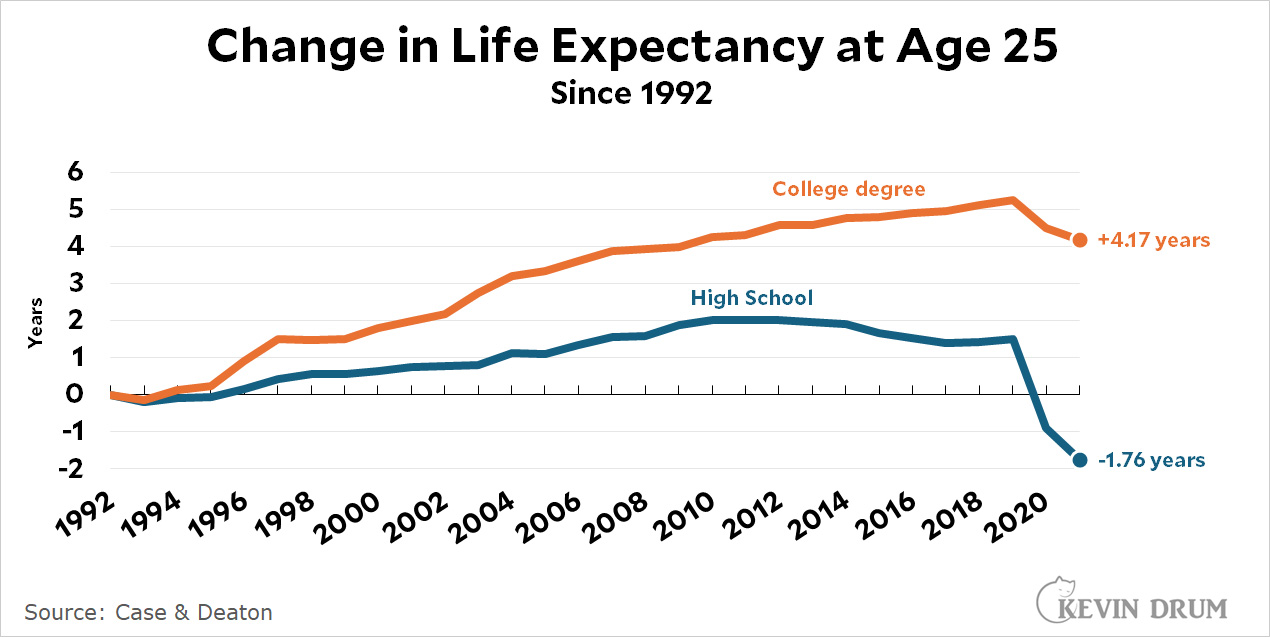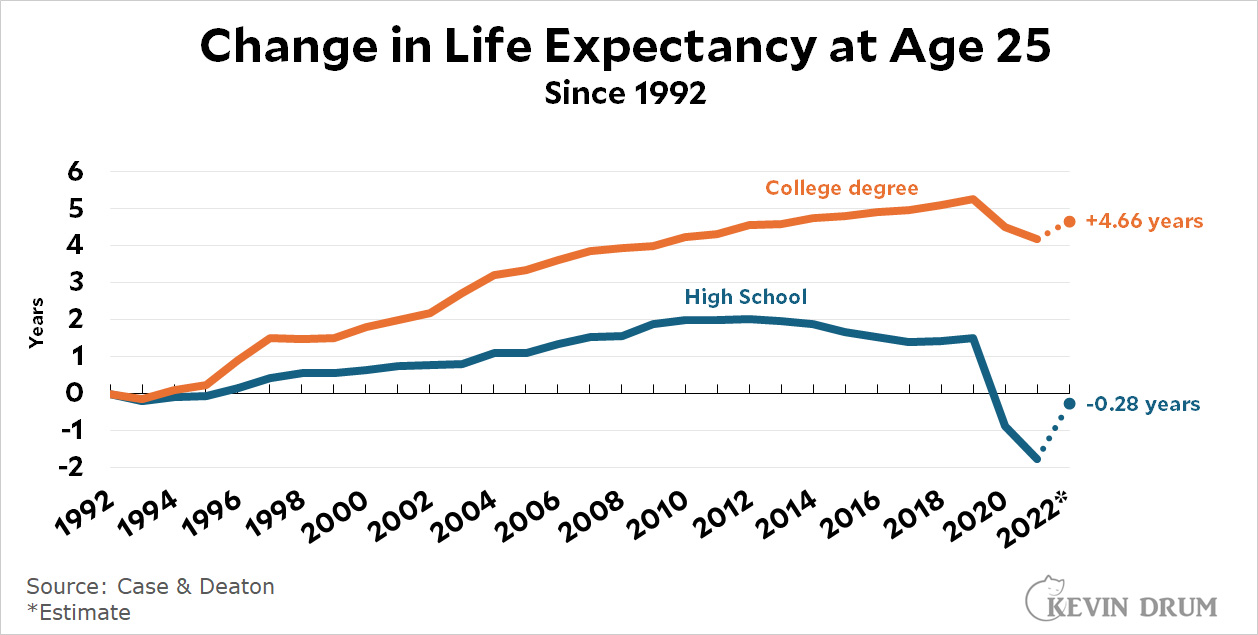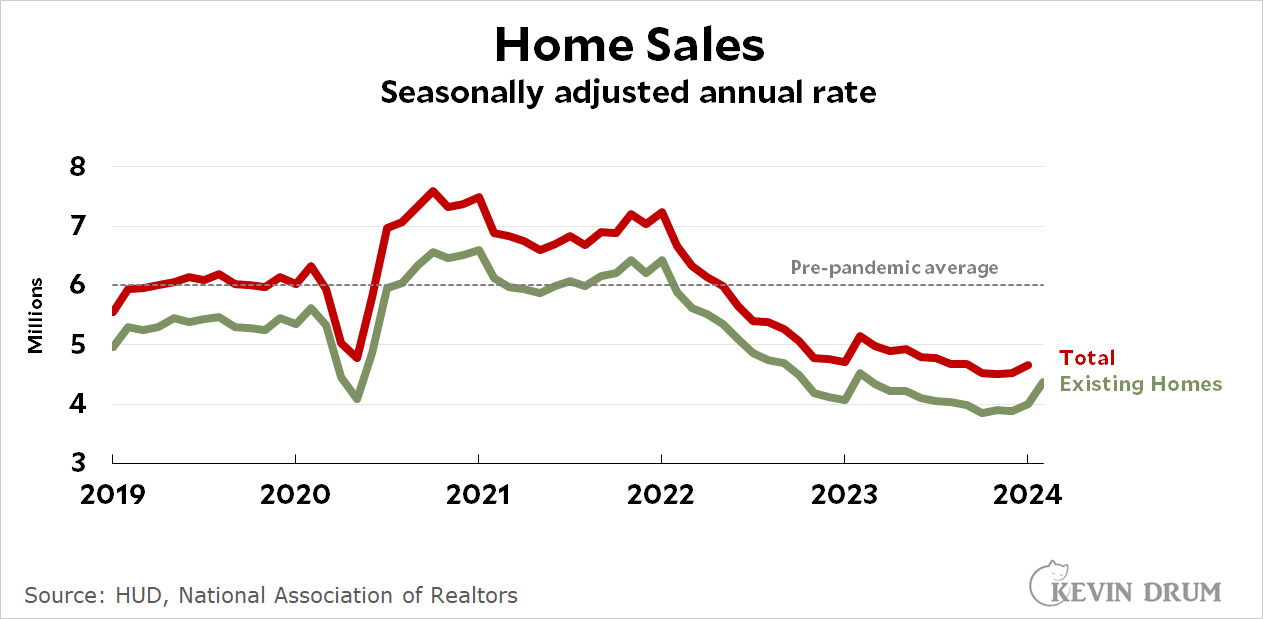Remember the great infant formula shortage of 2022? It was caused by a bacterial infection at a plant run by Abbott Laboratories, makers of the popular Similac brand.
Or was it? About half the formula in the US is provided free to low-income families via the WIC program, which runs competitive bidding in each state every few years to choose a supplier. Over at National Review, Dominic Pino says this is the real problem:
When government steps between customers and producers, price signals stop working as they should. The mutually beneficial dynamic by which competition between producers lowers prices and increases choices for customers does not have the chance to play out. Success in the market becomes dependent on closeness to government, rather than satisfying customers. The baby-formula market is a perfect illustration of this age-old story — but it’s hardly the only example.
Maybe! Ironically, though, the state-level competitive bidding idea was originally a conservative laboratories of democracy thing. After a decade of spiraling formula prices, states turned to competitive bidding to rein in costs:
The most decisive showdown occurred in Texas in 1988, where a conservative Republican administration moved to institute competitive bidding and some of the large manufacturers mounted a major opposition lobbying effort, but the state moved forward with competitive bidding nonetheless.
In 1989, statewide competitive bidding was mandated by Congress. President George H.W Bush sang its praises:
By utilizing the competitive forces of the market, these State laboratories of innovation were able to use savings of $300 million to increase WIC participation by 500,000 this year.... By moving all States to competitive bidding systems, this bill will save an additional $40 million and allow 68,000 more needy pregnant women, infants, and children to participate in WIC.
....This is the kind of action we must pursue — obtaining better value for each dollar of Federal spending — if we are to make progress on pressing national concerns.
Pino's peg for his piece is a recently released FTC report about the 2022 shortage. But that report, far from suggesting that government regulations had reduced the number of suppliers and made the supply chain more fragile, shows just the opposite:
 As you can see, the formula market has always been highly concentrated. However, since the start of competitive bidding it's gotten less concentrated, going from three major suppliers to four.
As you can see, the formula market has always been highly concentrated. However, since the start of competitive bidding it's gotten less concentrated, going from three major suppliers to four.
The only real problem is that while the market as a whole may have gotten more competitive, each state relies heavily on a single supplier. In 2022, for example, states that had contracts with Abbott were obviously hit especially hard. Still, what's the alternative? Not to conduct competitive bidding? That hardly makes sense.
So there's not really much to the market interference criticism. Statewide competitive bidding was a conservative idea in the first place, and it has indeed lowered taxpayer costs by billions of dollars with no ill effects on market concentration. The only remaining objection is a generic complaint about all social welfare programs distorting the free market, with WIC merely a handy example.
Actually, though, there is one remaining objection. Pino only barely mentions this, but he's right that competition suffers from pointless US tariffs on foreign sources of formula. That's something we probably really should do away with. Unfortunately, conservatives are pretty stoked about tariffs these days thanks to Donald Trump, so there's not much chance of that.






